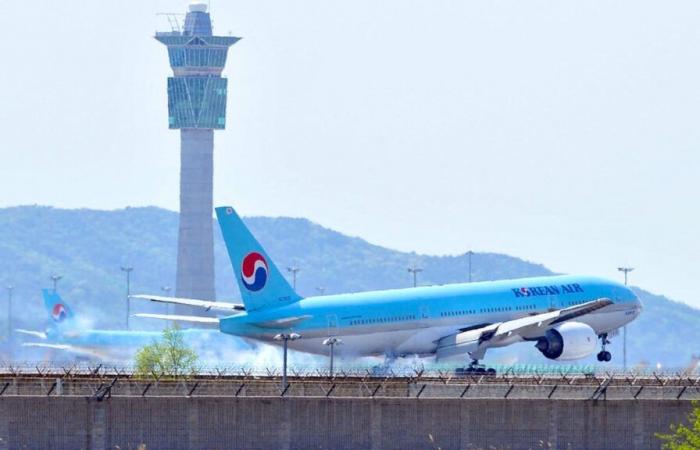Dozens of civilian planes suffered disruptions after this GPS signal jamming campaign.
AFP
North Korea has been carrying out a GPS signal jamming campaign since Friday that has affected several ships and dozens of civilian planes in South Korea, the South Korean army said on Saturday.
These accusations come at a time of tension around North Korea, which a little over a week ago fired a missile presented as the most advanced in its arsenal and is accused of sending thousands of soldiers to help Russia in its war against Ukraine, all in the context of the American election won by Donald Trump.
Call for caution
South Korea’s military urged caution for South Korean civilian boats and planes operating on and over the Yellow Sea between China and the Korean Peninsula, saying ships and dozens of aircraft were experiencing “some operational disruptions.
“We strongly urge North Korea to immediately stop its GPS provocations and warn it that it will be held responsible for any problems that result,” the Joint Chiefs of Staff in Seoul continued in a statement.
GPS jamming consists of emitting unknown signals which saturate GPS receivers and render them unusable for navigation. South Korea has accused North Korea numerous times in recent years of carrying out this type of nuisance from its territory. In May, the South Korean military reported a similar attack on Pyongyang, saying it did not interfere with any military operations in the South.
“Risk of serious incidents”
“GPS jamming attacks present a real risk of serious incidents, including potential plane crashes in the worst case,” Yang Moo-jin, president of the University of North Korean Studies in Seoul, told AFP. , noting that the goal of this campaign is “unclear.”
This could be an “intention to distract the world’s attention from (North Korean) troop deployments in Russia”, to instill psychological concern among residents of the South, or to respond to (South Korean military) maneuvers ) on Friday,” explains the specialist.
For defector Ahn Chan-il, director of the Global Institute of North Korean Studies, the jamming could allow the North to “protect its own communications and intelligence exchanges during crucial military operations” at home and abroad. .
These announcements come a little more than a week after a test firing by Pyongyang of an intercontinental ballistic missile (ICBM) presented by the regime as the most advanced in its arsenal.
Garbage balloons
The launch, days before the U.S. presidential election Tuesday, represented North Korea’s first weapons test since it was accused of sending troops to Russia to support its war effort in Ukraine.
South Korea responded Friday by firing one of its own ballistic missiles into the Yellow Sea with the aim of showing its “strong determination to respond firmly” to “any North Korean provocation.”
Since last May, Pyongyang has also sent thousands of balloons carrying garbage to South Korea. Some of these balloons disrupted traffic at Incheon International Airport, located northwest of Seoul, about 40 kilometers from North Korea. “Planes take off and land every two to three minutes” in Incheon, “so it is crucial to exercise caution,” notes Yang Moo-jin.
(afp)






